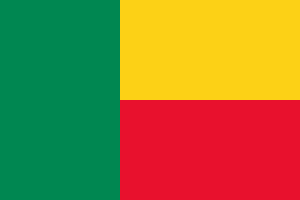Difference between revisions of "Language/Fon/Grammar/Questions"
m (Quick edit) |
m (Quick edit) |
||
| Line 41: | Line 41: | ||
Now you know how to ask questions in Fon! Asking questions is an important part of any language, and it can be tricky to get the grammar right. But with this lesson, you should now have a good understanding of how to ask questions in Fon. | Now you know how to ask questions in Fon! Asking questions is an important part of any language, and it can be tricky to get the grammar right. But with this lesson, you should now have a good understanding of how to ask questions in Fon. | ||
<br><hr>If you have any questions, please ask them in the comments section below.<br>Feel free to edit this wiki page if you think it can be improved. 😎 | <br><hr>If you have any questions, please ask them in the comments section below.<br>Feel free to edit this wiki page if you think it can be improved. 😎 | ||
==Related Lessons== | |||
* [[Language/Fon/Grammar/Negation|Negation]] | |||
* [[Language/Fon/Grammar/Conditional-Mood|Conditional Mood]] | |||
* [[Language/Fon/Grammar/Pronouns|Pronouns]] | |||
* [[Language/Fon/Grammar/Plurals|Plurals]] | |||
* [[Language/Fon/Grammar/Adjectives|Adjectives]] | |||
{{Fon-Page-Bottom}} | {{Fon-Page-Bottom}} | ||
Revision as of 22:54, 25 February 2023
Hi Fon learners! 😊
In today's lesson, we will be learning about how to ask questions in the Fon language. Asking questions is an important part of any language, and it can be tricky to get the grammar right. But don't worry, by the end of this lesson you'll have a good understanding of how to ask questions in Fon.
Basic Question Structure
The basic structure for asking questions in Fon is quite simple. All you need to do is add the word 'na' at the end of the sentence. For example:
- O ye o? (Are you going?)
- O ye na? (Are you going?)
This works for both yes/no questions and wh-questions.
Yes/No Questions
Yes/no questions are questions that can be answered with either 'yes' or 'no'. To form a yes/no question in Fon, simply add the word 'na' at the end of the sentence. For example:
- O ye o? (Are you going?)
- O ye na? (Are you going?)
Wh-Questions
Wh-questions are questions that start with a question word such as 'who', 'what', 'when', 'where', 'why', or 'how'. To form a wh-question in Fon, you need to add the question word at the beginning of the sentence and the word 'na' at the end. For example:
- Who o ye? (Who are you?)
- Who o ye na? (Who are you?)
Other Question Structures
In addition to the basic question structure, there are a few other ways to ask questions in Fon.
Tag Questions
Tag questions are questions that are added to the end of a statement. To form a tag question in Fon, you need to add the word 'na' at the end of the statement. For example:
- O ye o, na? (You're going, right?)
Rising Intonation
Rising intonation is when you raise your voice at the end of a sentence to indicate that it is a question. To form a question with rising intonation in Fon, you need to add the word 'na' at the end of the sentence. For example:
- O ye o na? (Are you going?)
Conclusion
Now you know how to ask questions in Fon! Asking questions is an important part of any language, and it can be tricky to get the grammar right. But with this lesson, you should now have a good understanding of how to ask questions in Fon.
If you have any questions, please ask them in the comments section below.
Feel free to edit this wiki page if you think it can be improved. 😎
